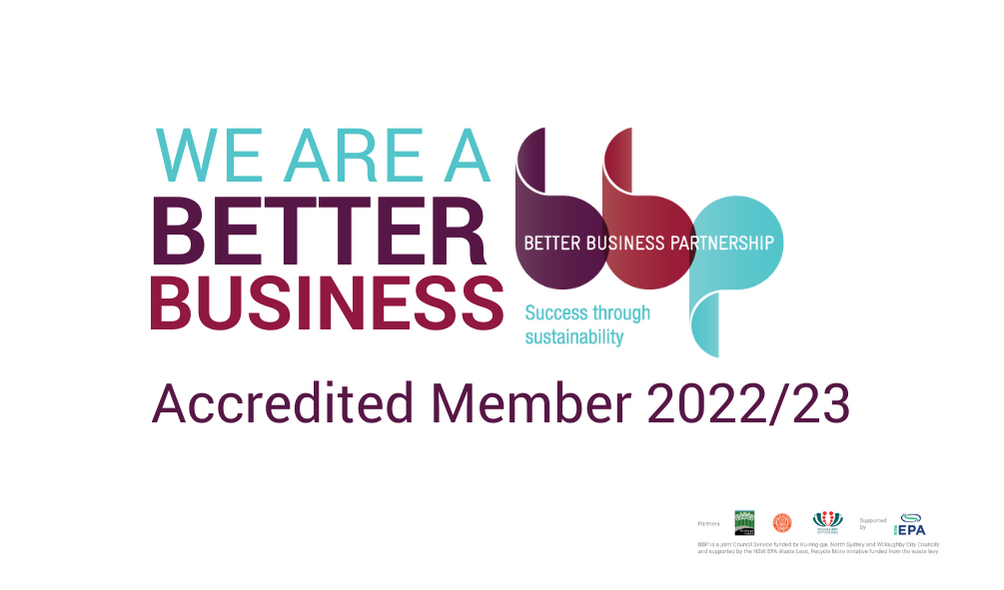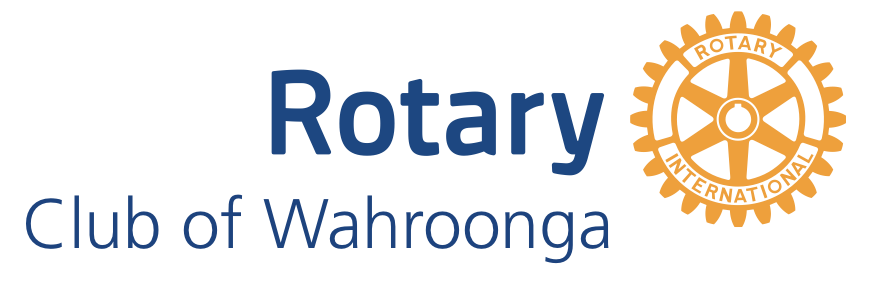The Rotary Foundation story
The Rotary Foundation
The Rotary Foundation
The mission of The Rotary Foundation is to enable Rotarians to advance world understanding, goodwill, and peace through the improvement of health, the support of education, and the alleviation of poverty.
The Foundation is a not-for-profit corporation supported solely by voluntary contributions from Rotarians and friends of the Foundation who share its vision of a better world.
Wahroonga is a strong supporter of the Rotary Foundation both through fund contributions and program participation. District Rotary Foundation Chairman: Tony Castley.
Grants
Giving – Annual Programs Fund Contributions by Individuals
When made through The Australian Rotary Foundation Trust, the contributions are tax deductible. When a contribution is made directly to The Rotary Foundation, no tax deduction is available. Contributions accumulate Paul Harris Fellow credits for the individual when the funds are donated by the individual. The credits allocated to an individual do accumulate towards both the club and district total giving amounts.
When made through The Australian Rotary Foundation Trust, the contributions are tax deductible. When a contribution is made directly to The Rotary Foundation, no tax deduction is available. Contributions accumulate Paul Harris Fellow credits for the individual when the funds are donated by the individual. The credits allocated to an individual do accumulate towards both the club and district total giving amounts.
Sustaining Member (Centurion Club)
You can become a Sustaining Member (Centurion Club) member by making a tax deductible contribution of USD$100 or more per annum ($2.44 per week) for as long as you are in a position to do so. Your contribution (payable to The Australian Rotary Foundation Trust), supports the humanitarian work of The Rotary Foundation. Fifty percent of the donated money returns to District 9685 after 3 years for use in Rotary Foundation programs and projects.
You can become a Sustaining Member (Centurion Club) member by making a tax deductible contribution of USD$100 or more per annum ($2.44 per week) for as long as you are in a position to do so. Your contribution (payable to The Australian Rotary Foundation Trust), supports the humanitarian work of The Rotary Foundation. Fifty percent of the donated money returns to District 9685 after 3 years for use in Rotary Foundation programs and projects.
Please contact me if you are not already contributing to the Rotary Foundation and would like to. This is our charity and it would be wonderful if each asn every member could see their way clear to make a contribution, no matter how large or small each and every year.
Paul Harris Society
A tax deductible District 9685 administered recognition program for Rotarians who wish to support The Rotary Foundation by contributing USD$1,000 or more, annually, through The Australian Rotary Foundation Trust. Contributions directed through The Australian Rotary Foundation Trust are tax deductible.
A tax deductible District 9685 administered recognition program for Rotarians who wish to support The Rotary Foundation by contributing USD$1,000 or more, annually, through The Australian Rotary Foundation Trust. Contributions directed through The Australian Rotary Foundation Trust are tax deductible.
Contributions by Clubs
Unrestricted Giving and Restricted Giving (to Matching Grants and Polio Eradication) build up Paul Harris Fellow recognition credits for the Club from which the money has been received. The Finance Department of The Rotary Foundation, located in Parramatta receives and processes contributions. These are recorded monthly on the Club Recognition Summary.
Unrestricted Giving and Restricted Giving (to Matching Grants and Polio Eradication) build up Paul Harris Fellow recognition credits for the Club from which the money has been received. The Finance Department of The Rotary Foundation, located in Parramatta receives and processes contributions. These are recorded monthly on the Club Recognition Summary.
Contact: John Cameron
Giving – Permanent Fund
Purpose: Enable individuals to donate to the Rotary Foundation’s endowment fund to address educational, humanitarian and cultural programs and projects throughout the world for generations to come [target $1 billion by 2025]. In a Rotary year, about $8 million from the Permanent Fund is made available to support Foundation programs.
Giving options include:
• The Rotary Centres International Studies Gift initiative – (peace and conflict resolution).
• Outright contributions
• Planned giving
• Donor advised fund
• Memorial and tribute gifts – Bequests.
• Outright contributions
• Planned giving
• Donor advised fund
• Memorial and tribute gifts – Bequests.
Contact: John Cameron
Restricted Giving – PolioPlus: Global Polio Eradication Effort
Purpose: Eradicate polio. Protect a child against polio for as little as USD$0.60 cents of vaccine. By the time the world is certified polio-free, Rotary’s contributions to the global polio eradication effort will exceed US$1.2 billion.
Global certification of polio eradication will be achieved when no wild polio virus associated cases have occurred for at least three years. More than 500,000 cases of polio are now prevented each year by the efforts of governments and the partnership of the World Health Organization (WHO), Rotary International, the United Nations Children’s Fund (UNICEF), the United States Centres for Disease Control and Prevention (CDC), the Bill and Melinda Gates Foundation, and the overseas development agencies of donor nations.
Since 1985 more than two billion children have received oral polio vaccine. The number of countries which continue to be polio endemic has declined from over 125 countries in 1985 to 3 countries in 2013 (Nigeria, Afghanistan and Pakistan). The number of polio cases has declined by more than 99% since 1985.
The greatest obstacles to final victory are cultural attitudes and practices, war conditions and insufficient funding. Money is still needed for vaccine and its delivery through National Immunisation Days, and surveillance systems needed to identify remaining pockets of the disease.
Contact: John Cameron
Paul Harris Fellow Recognition
A Paul Harris Fellow is a person who has contributed, or in whose name a contribution of USD$1,000 has been made, to the Annual Programs Fund and certain other programs of The Rotary Foundation. Recognition of a Paul Harris Fellow is an opportunity to show appreciation for a person, either Rotarian or non-Rotarian, who shares the values of the Foundation.
Application to recognise a person as a Paul Harris Fellow is made to the Rotary International South Pacific and Philippines Office in Parramatta, NSW using the prescribed form available for download on the following link: PHF recognition application form
A suggested wording to be used for the presentation ceremony to recognise a Paul Harris Fellow is contained in the document available on this link: PHF sample presentation
This sample presentation can also be used, with appropriate modification to the wording for a Multiple Paul Harris recognition (one or more sapphires)
Contact: John Cameron
Grants
The District Foundation Committee determines, allocates and monitors the distribution of District Designated Funds.
It:
- Assists Rotary Clubs to develop local and international service projects
- Informs Clubs about The Rotary Foundation Grant opportunities
- Reviews District Grants for approval and Global Grant applications prior to submission to The Rotary Foundation
- Maintains records of District Designated Fund allocations and Grant approvals encouraging a high level of stewardship of Foundation Funds.
District Simplified Grants
District Simplified Grants (for Local and International projects) are made available to clubs through the District Foundation Grants Committee to support short-term humanitarian projects and scholarships. District Grant projects support the mission of The Rotary Foundation: “… to enable Rotarians to advance world understanding, goodwill, and peace through the improvement of health, the support of education, and the alleviation of poverty.”
The document required to apply for a District Simplified Grant for humanitarian projects in 2014/15 can be downloaded from the relevant link:
Wahroonga has had a number of such grants over time. More recently we have been supported with grants for scholarships – St Lucy’s & St Edmund’s as well as the Hornsby Kuring-Gai Women’s Shelter to support their start-up needs. $2,000 on each occasion. On Friday last we applied for a $5,000 to support short term needs in Nepal.
Upon completion of the project, a Club District Grant Report is to be provided, accompanied by copies of relevant receipts for project expenditures. The Report Form can be downloaded from the link:
All District Simplified Grant projects should aim to complete by the end of the current Rotary year.
Contact: John Cameron
Global Grants: Assist Clubs to fund international humanitarian service projects in co-operation with Rotarians in another country.
- Applications must be referred to the Grants Committee before processing by The Rotary Foundation.
- The District is required to review the paperwork and ensure that the accounting aspects or completion of any previous Grant responsibility is not outstanding.
These grants are the modern/latest versions of the former Matching Grants.
The Rotary Foundation contributed some $9,000 to each of our last Matching Grants, namely the KYDS project (total cost $30,000); and the PCYC Bus project (another $30,000 project). $18,000 in all for those two projects.
If you want to see a Global Grant I will happily give you a good example.
Contact: John Cameron
Vocational Training Teams – formerly Group Study Exchange (now funded from District Simplified Grants)
A Vocational Training Team (VTT) is a team of experienced professionals that travel to another country to increase the skills and knowledge of local people in a specific field, or to enhance their own skills through exposure to the skills, knowledge and experience of specialists, in that country. Teams generally require a Rotary leader and can be comprised of Rotarians and non-Rotarians. Funding for a VTT is part supported by a Global Grant.
Contact: John Cameron
Rotary Foundation Scholarships
Ambassadorial Scholarships – Seeks to promote understanding and friendly relations between people of different nations through Scholarships, awarded to outstanding persons to study in another country. Enables students to undertake formal university studies outside their own country for one year and act as Rotary Ambassadors of goodwill. The district hosts inbound Scholars from other countries.
There have been many success stories – Babb, Sir William Dean, Alister Heskens, Jennie Macklin,
Contact: John Cameron
Rotary World Peace Scholarships – The Rotary Centres for International Studies in Peace and Conflict Resolution offer the opportunity to pursue a two year fully funded masters-level degree in international studies, peace studies and conflict resolution at one of six Rotary Centres. Scholars are chosen based on their potential to have a significant and positive impact on world peace and conflict resolution during their future careers.
The Peace Scholarship Application Timetable – Clubs are invited to nominate potential scholars approximately 18 months in advance of the study period. Application forms are available from the “Rotary.org” website. Applications close on April 30 for people interested in taking up the Scholarship. Only sixty Peace Fellowships worldwide are granted annually.
Rotary Peace & Conflict Studies Program – The Rotary Peace & Conflict Studies Program offers a fully funded professional development opportunity for midcareer professionals in fields related to conflict resolution and peace building. Up to 25 participants from around the world experience an intensive 3 month course at Chulalongkorn University in Bangkok.
Contact: John Cameron
Rotary Foundation Alumni
Rotary Foundation Educational Programs forge bonds between alumni and Rotarians that can last a lifetime. Former Ambassadorial Scholars, Rotary World Peace Fellows, and Group Study Exchange team members are often interested in joining a Rotaract or Rotary club, or a Foundation alumni association. Many Rotaract and Rotary clubs, in turn, are interested in inviting alumni to become members.
Rotary Foundation alumni include former participants of the following programs:
- Ambassadorial Scholarships
- Carl P. Miller Discovery Grants
- Group Study Exchange
- Rotary Grants for University Teachers
- Rotary Peace and Conflict Studies Program
- Rotary World Peace Fellowships (Rotary Centers for International Studies in peace and conflict resolution)
- Volunteer Service Grants
Foundation programs enrich the lives of participants and spread Rotary’s vision of peace through person-to-person contact, friendship, study, service, and cross-cultural exchange. Program participants serve as goodwill ambassadors not only when they’re abroad but also when they return to their home countries.
Rotary Foundation Alumni Associations encourage alumni to maintain contact with Rotary.
Contact: John Cameron
______________


